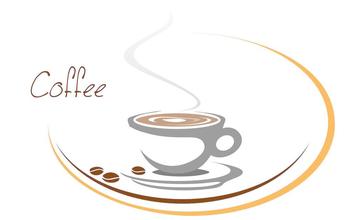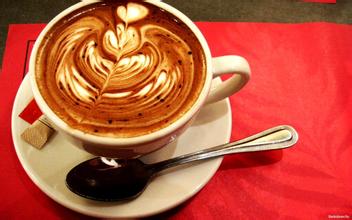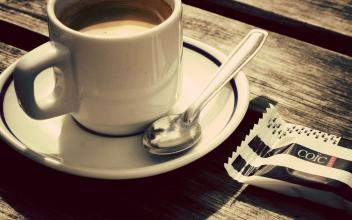Introduction to the quality characteristics of Coffee Grinding scale in Cliff Manor, Jamaica
By 1981, about 1500 hectares of land in Jamaica had been reclaimed for coffee cultivation, followed by investment in another 6000 hectares of coffee land. In fact, today's Blue Mountain area is a small area with a planting area of only 6000 hectares, and not all coffee marked "Blue Mountain" can be grown there. An additional 12000 hectares of land is used to grow two other types of coffee (non-Blue Mountain Coffee): Alpine Top Coffee (High Mountain Supreme) and Jamaican Coffee (Prime Washed Jamaican). Some small estates also grow Blue Mountain Coffee, such as Wallenford Manor (Wallenford Estate), Silver Mountain Manor (Silver Hill Estate) and Atlanta Estate Manor in J.Martinez (Atlanta Estate). Even the largest landowners in the region are small-scale growers by international standards, many of whom are small landowners whose families have been working on the land for two centuries. The coffee industry in Jamaica faces a series of problems, such as the impact of hurricanes, the increase in labor costs and the difficulty of mechanizing terraces. It is difficult to rationalize planting on many small estates and farms.
However, Blue Mountain Coffee is one of those coffee retailers that value credibility to stock some coffee no matter what. A leading British retailer said: regardless of the price, he will continue to sell Blue Mountain coffee all year round because he has many customers who only recognize "Blue Mountain". The difference in transportation between Blue Mountain coffee and other coffee is that it is transported in barrels with a capacity of 70kg, which is a replica of Bonifieur barrels produced in Guadeloupe in the last century. The barrel was originally used to carry flour shipped from the United Kingdom to Jamaica, usually with a trademark and the name of the manufacturer. The Coffee Industry Council issues certificates for all authentic Jamaican coffee and bears a stamp of approval before export.
The Jamaican government used to insist that all Blue Mountain coffee is roasted in Jamaica to ensure that the quality remains the same. In fact, baking is a fine art, and it takes experience, training and expensive equipment to do a good job. From the consumer's point of view, coffee beans should be obtained and drunk immediately after baking. Coffee roasting in Jamaica is unlikely to meet this requirement. Now, raw coffee beans from Jamaica can be exported.

Important Notice :
前街咖啡 FrontStreet Coffee has moved to new addredd:
FrontStreet Coffee Address: 315,Donghua East Road,GuangZhou
Tel:020 38364473
- Prev

Introduction to the quality and taste of coffee flavor description treatment at Manor Atlanta, Jamaica
The earliest Jamaican Blue Mountain refers to the coffee produced by Warren Ford Farm and Silver Hill Farm, and the former is of the best quality; today's Jamaican Blue Mountain, refers to coffee beans growing in the Blue Mountains area east of Kingston, the capital of Jamaica (more than 1000 meters high). Now Mawei is the largest manor, its barrel is printed with M.B.C.F, and its products are often found in Taiwan. Tooth purchase
- Next

Description of Coffee Flavor in Lazimus Manor, Colombia introduction to Grinding scale of Variety characteristics
The pure taste of Colombian coffee comes from Colombia's natural environment with the most favorable conditions for coffee growth. But beyond that, it is inseparable from the hard work of local growers. In Colombia, coffee cultivation has reached 1.07 million hectares, there are about 302000 coffee plantations in the country, and 30 to 40 per cent of the rural population depends directly on coffee production. Columby
Related
- Does Rose Summer choose Blue, Green or Red? Detailed explanation of Rose Summer Coffee plots and Classification in Panamanian Jade Manor
- What is the difference between the origin, producing area, processing plant, cooperative and manor of coffee beans?
- How fine does the espresso powder fit? how to grind the espresso?
- Sca coffee roasting degree color card coffee roasting degree 8 roasting color values what do you mean?
- The practice of lattes: how to make lattes at home
- Introduction to Indonesian Fine Coffee beans-- Java Coffee producing area of Indonesian Arabica Coffee
- How much will the flavor of light and medium roasted rose summer be expressed? What baking level is rose summer suitable for?
- Introduction to the characteristics of washing, sun-drying or wet-planing coffee commonly used in Mantenin, Indonesia
- Price characteristics of Arabica Coffee Bean Starbucks introduction to Manning Coffee Bean Taste producing area Variety Manor
- What is the authentic Yega flavor? What are the flavor characteristics of the really excellent Yejasuffi coffee beans?

